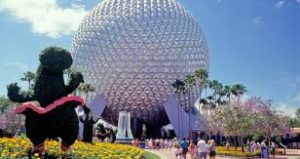Saturday, June 22, 2019
 Tourism is a source of major revenue earner for many cities, whether they attract visitors because of theme parks, historic or natural sites, or sporting events. However, recently, something else is attracting tourists to some places, and that is technology.
Tourism is a source of major revenue earner for many cities, whether they attract visitors because of theme parks, historic or natural sites, or sporting events. However, recently, something else is attracting tourists to some places, and that is technology.
Home to Walt Disney World, Universal Studios and SeaWorld, Orlando, Florida has little trouble attracting visitors. A record 75 million visitors came to the city in 2018, but Mayor Buddy Dyer wants to make sure that their experience in the city, not just the parks, is first-class.
Dyer said, “To accommodate visitors of that [number], you have to continuously figure out how to use technology.” In fact, in-vehicle GPS navigation started in Orlando, helping tourists safely get from the airport to their hotels, and the city was the first to try electronic tolling on highways. Now, Orlando International Airport is pilot testing facial-recognition technology to help ease checkpoint crowds for international flights.
The theme parks make use of technology to make traveling easier for guests. For instance, Disney uses FastPass+ wristbands that Walt Disney World Resorts guests can use to unlock the doors to their rooms, pay for meals and speed up wait times for rides.
“We’re in the process of developing a smart cities master plan and road map,” said Chris Castro, Orlando’s director of sustainability. He added, “We realize that leveraging the latest and greatest technologies has the ability of really helping us to solve some of the unique urban problems that are facing cities today, and at the end of the day, to enhance the visitor experience, to enhance the quality of life of those who live and work here, and move towards a destination that’s greener and cleaner and healthier.”
Safety is another benefit of better data analytics for tourists and residents in a similar way.
Technology plays a significant role in consumers’ travel decisions throughout the life cycle of any trip, said Youcheng Wang, Dean of the Rosen College of Hospitality Management at University of Central Florida. The smart tourism effort is designed to decrease the complexity of decision-making, whether it’s what flight to book or where to eat, Wang said.
Wang said, “You have to have some kind of overall environment as pillars to support the smart aspects of the destination. One pillar is technology the way the city supports operations, communications and information sharing. Whether it’s a big city destination or small rural destination, you can make your destination smart. When you make your destination smart, the benefactors are not only the visitors. The local people will also benefit from that.”
Tags: Orlando, technology in tourism
Thursday, April 25, 2024
Friday, April 26, 2024
Friday, April 26, 2024
Friday, April 26, 2024
Friday, April 26, 2024
Friday, April 26, 2024